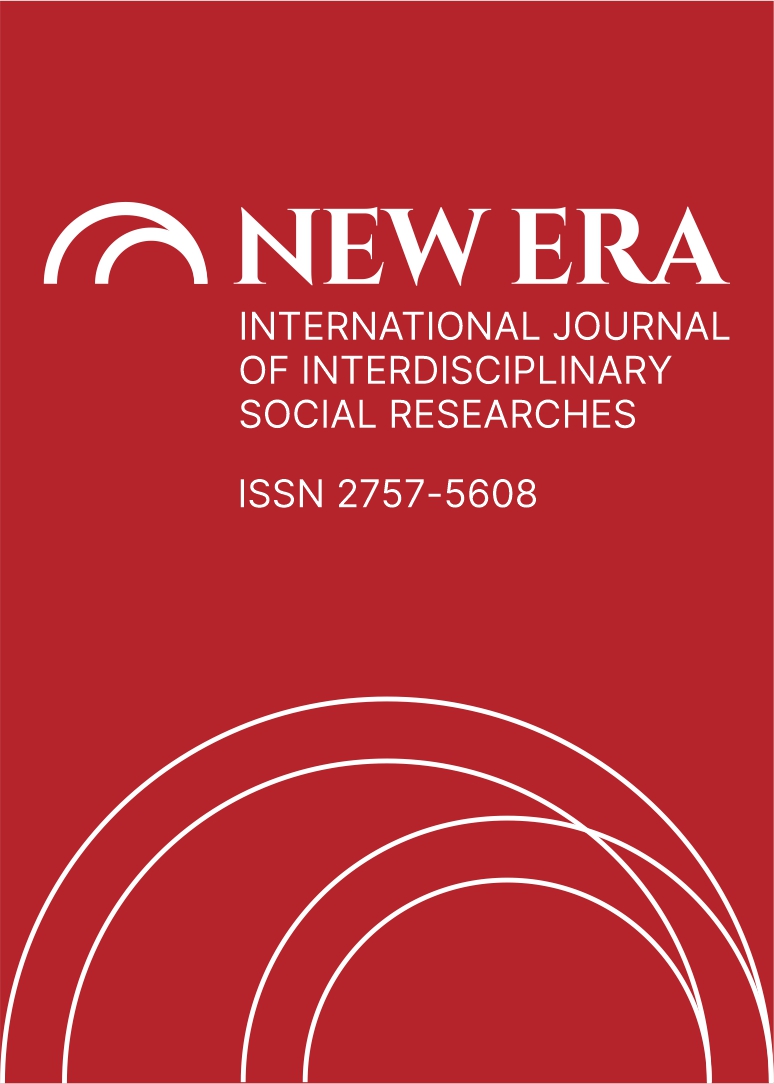STUDY OF TOURISM EMPLOYEES IN VAN PROVINCE CENTRAL DISTRICTS OF BURNOUT SYNDROME EFFECT ON THEIR LIVES AND FAMILY LIVES
Makale
DOI:
https://doi.org/10.5281/zenodo.7443392Abstract
In our lives our increasingly complex relationships, our individual communications, our roles in life, our competition and the feeling of loneliness which increasingly come true are dragging us towards an inextricable syndrome. All these negative situations affect the mental health of us and especially the individuals involved in working life. Burnout syndrome, which has been used frequently lately and makes itself felt above employers and employees in all areas of life, is perhaps the most negative concept that negatively affects our lives. This concept of burnout takes its place in life due to the great damage to the mental health and physical energy of the person, which occurs due to stress. It has now become a popular concept.
The purpose of this research is to understand the situation of professional satisfaction and, accordingly, to try to reveal how the employees in the tourism sector feel the concept of burnout in their working life and their hopelessness, if there is. This research is a study on how the emotional state of employees in the tourism sector in certain regions of Van province, affects their working life and how this emotional state affects their social and family lives. It is also an example of a descriptive research on the mood of the burnout syndrome created by this situation in terms of employees and the reasons for this mood. Our main goal here is to reveal the factors that affect the burnout syndrome, which constantly makes its presence felt on the employees in the tourism sector. Because the employees of this sector perform too much and when they are not satisfied with the performance spent (material, moral, communicative, social, etc.) they can collapse emotionally. When the situation is so, this syndrome can spread to the whole life of the person like the links of a chain.
References
Maslach, C., Schaufeli, W. B., and Leiter, M. P. (2001). Job burnout. Annual Review of Psychology, 52, 397_/422.
Kırılmaz, A. Y., Çelen, Ü. Ve Sarp N. (2003), “İlköğretim’de Çalışan bir Öğretmen Grubunda
“Tükenmişlik Durumu” Araştırması” İlköğretim-Online 2 (1) s2-9
Göktaş Kulualp, H., sarı, ö., (2019). Tükenmişlik sendromu: kamu kuruluşu çalışanları üzerine bir uygulama. Süleyman Demirel üniversitesi sosyal bilimler enstitüsü dergisi, (35), 211-230
Maslach, C. ve Jackson, S. E. (1981) “ The Measurement Of Experienced Burnout”, Journal Of Occupational Behaviour, 2, 99-113.
Pelit, E. ve Türkmen, F. (2008) “Otel işletmeleri iş görenlerinin Tükenmişlik Düzeyleri: Yerli ve Yabancı Zincir Otel işletmeleri iş görenleri Üzerinde Bir Araştırma”, Gazi Üniversitesi İktisadi ve İdari Bilimler Fakültesi Dergisi, 10 (1). 117 – 139.
Altay, H. ve Akgül, V. (2010) “Seyahat Acentaları Çalışanlarının Tükenmişlik Düzeyi: Hatay Örneği”, Mustafa Kemal Üniversitesi Sosyal Bilimler Enstitüsü Dergisi, 7(14), 87-112.
Sabuncuoğlu, Zeyyat-Melek Tüz Örgütsel Psikoloji, Furkan Ofset, Bursa 2003.
Sağlık Yönetimi Bölümü (Yrd. Doç. Dr. H. Ulusoy, Öğr. Gör. E. B. Biçer, Arş. Gör. N. Karabulut), Cumhuriyet Üniversitesi Sağlık Bilimleri Fakültesi, TR-58140 Sivas
Oğuz ÇAM- Cengiz ÇELİK/ KAFDAĞI, Cilt:7, Sayı 1, 2022, 19-38
KMÜ Sosyal ve Ekonomi̇k Araştırmalar Dergi̇si 14 (23): 91-96, 2012
Turizm Prens.Online Turizm Gazetesi‘’https://turizmpress.com/kaynakca/turizm-nedir/’’Erişim 02.12.222
Downloads
Published
How to Cite
Issue
Section
License
Copyright (c) 2022 NEW ERA INTERNATIONAL JOURNAL OF INTERDISCIPLINARY SOCIAL RESEARCHES

This work is licensed under a Creative Commons Attribution-NonCommercial 4.0 International License.


